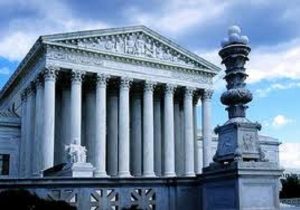3 Things To Watch For Post-TC Heartland
The Supreme Court has spoken, and change is coming to patent law yet again.
 Back in late January, I wrote in these pages about a pending Supreme Court decision “with the potential to disrupt business as usual for patent lawyers and litigants in a significant way.” Well, the Supreme Court has spoken, and change is coming to patent law yet again.
Back in late January, I wrote in these pages about a pending Supreme Court decision “with the potential to disrupt business as usual for patent lawyers and litigants in a significant way.” Well, the Supreme Court has spoken, and change is coming to patent law yet again.
In TC Heartland v. Kraft Foods Group Brands, Justice Thomas authored an opinion joined by all his colleagues (with the exception of Justice Gorsuch, who was not yet on the bench when the case was argued), and reversed a finding that venue was proper against TC Heartland in Delaware, since TC Heartland is “organized under Indiana law and headquartered in Indiana” — and despite the fact that “it does shop the allegedly infringing products into” Delaware. (Slip. Op. at 2.) In other words, personal jurisdiction is no longer enough to establish venue in patent cases.
The decision gives renewed force to the patent venue statute codified in 1948, and overrules the Federal Circuit’s decision in VE Holding, a 1990 case that led to the (now-defunct) more permissive view of venue in patent cases. As every patent litigator knows, patent venue since VE Holding has been tied to establishing personal jurisdiction over the defendant, which opened the door for suing larger corporations with nationwide sales in a district of the plaintiff’s choosing (subject of course to potential transfer for convenience reasons). In one fell swoop, however, the Supreme Court has decided that the status quo is based on an incorrect understanding of venue in patent cases. Because of this decision, change will come, and it will be immediate. Going forward, venue in patent cases will be only appropriate when the requirements of the special patent venue statute are met.

How Savvy Lawyers Build Their Law Firm Rate Sheet
While the implications of this decision will no doubt be debated extensively by academics, practitioners, and the IP media over the next few weeks, three immediate takeaways come to mind. First, the Supreme Court continues to reverse the Federal Circuit without hesitation. Second, patent litigators will have a much simpler time deciding where to file their cases, but may have to concentrate more on the merits at an earlier stage. Third, this decision may renew calls for special “patent courts,” especially since patent cases may threaten to overrun the docket of the District of Delaware, while remaining concentrated in fewer districts overall. Let’s address each in turn.
“We reverse the Federal Circuit” (Slip Op. at 7) are words that patent practitioners have come to expect from the Supreme Court. And we can expect the Supreme Court to continue its pattern of reversing the Federal Circuit when it decides to take on future patent cases. Whether it involves injunctions, patentable subject matter, or any other patent issue, the Supreme Court has not shied away from correcting the Federal Circuit in cases where it feels there has been doctrinal overreach. Here, the Federal Circuit was in the semi-unusual position of arguing that when it came to venue, there was no patent law exceptionalism, and the general venue statute applying to other civil actions should control. Even though the Federal Circuit had over 25 years of actual legal practice on its side, the Supreme Court had no compunction about refocusing the law on the text of the actual patent statute. Absent congressional action, therefore, practitioners who treated venue in patent cases a certain way for their entire careers must now adapt to the new reality.
On that point, it is clear that for most patent defendants that are domestic corporations, TC Heartland has effectively limited where they can be sued for patent infringement. In some cases, when the erstwhile defendant has its only established place of business in the state of its incorporation, there will be a single satisfactory situs for suit going forward. For larger companies, who may be incorporated in one state but have physical locations in others, the list of potential permissible venues may be larger. Already, commentators have suggested we may be in for more litigation on what “a regular and established place of business” means with respect to the second prong of the patent venue statute.
Take Apple, as an example. Is an Apple Store a regular and established place of business (perhaps likely) such that Apple could be sued for patent infringement in every district that has an Apple Store? What about districts that don’t have an Apple Store, but where Apple has dedicated shelf space at a retailer like Best Buy (probably less likely to create venue)? These issues will likely play out as plaintiffs try their hardest to bring lawsuits in what they consider more favorable locales.
Sponsored

Trust The Process: How To Build And Manage Workflows In Law Firms

How Savvy Lawyers Build Their Law Firm Rate Sheet

A Law Firm Checklist For Successful Transaction Management


Trust The Process: How To Build And Manage Workflows In Law Firms
Because state of incorporation automatically vests proper venue, however, we are also likely to see an uptick in patent cases filed where the defendant is incorporated. A plaintiff, for example, may not want the distraction of venue or transfer, and just decide to take the issue of the table completely. This strategy puts a premium on the plaintiff being prepared to litigate on the merits, which is normally a good thing, particularly in complex cases like patent cases. At the same time, a jurisdiction like Delaware, which already struggles to keep up with its heavy patent caseload, could potentially become overwhelmed with filings, making it impossible to keep cases moving at a reasonable pace. If that happens, or even before it happens, I would not be surprised to see calls renewed for special patent courts, especially if all those cases destined for filing in the Eastern District of Texas are redirected to a small number of other districts. There is only so much appetite that District Court judges have for patent cases to begin with. Adding more to their workload in a way that is imbalanced is a recipe for trouble, and there may be a call for alternative tribunals to alleviate the pressure. In the meantime, and perhaps surprisingly, the Supreme Court has decided that patent cases are special — at least when it comes to venue. Now the scramble begins.
Please feel free to send comments or questions to me at gkroub@kskiplaw.com or via Twitter: @gkroub. Any topic suggestions or thoughts are most welcome.
Gaston Kroub lives in Brooklyn and is a founding partner of Kroub, Silbersher & Kolmykov PLLC, an intellectual property litigation boutique. The firm’s practice focuses on intellectual property litigation and related counseling, with a strong focus on patent matters. You can reach him at gkroub@kskiplaw.com or follow him on Twitter: @gkroub.
Sponsored

Not All Legal AI Is Created Equal









